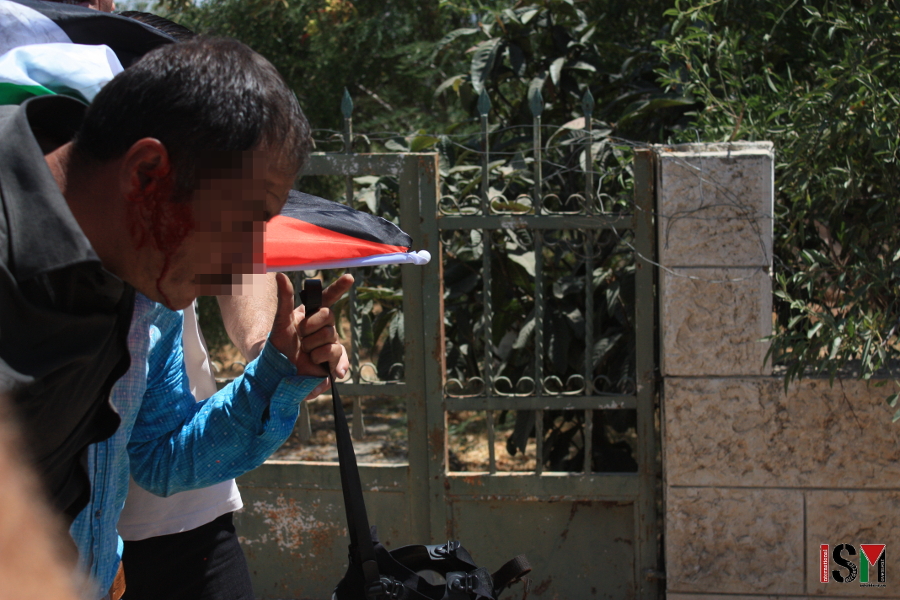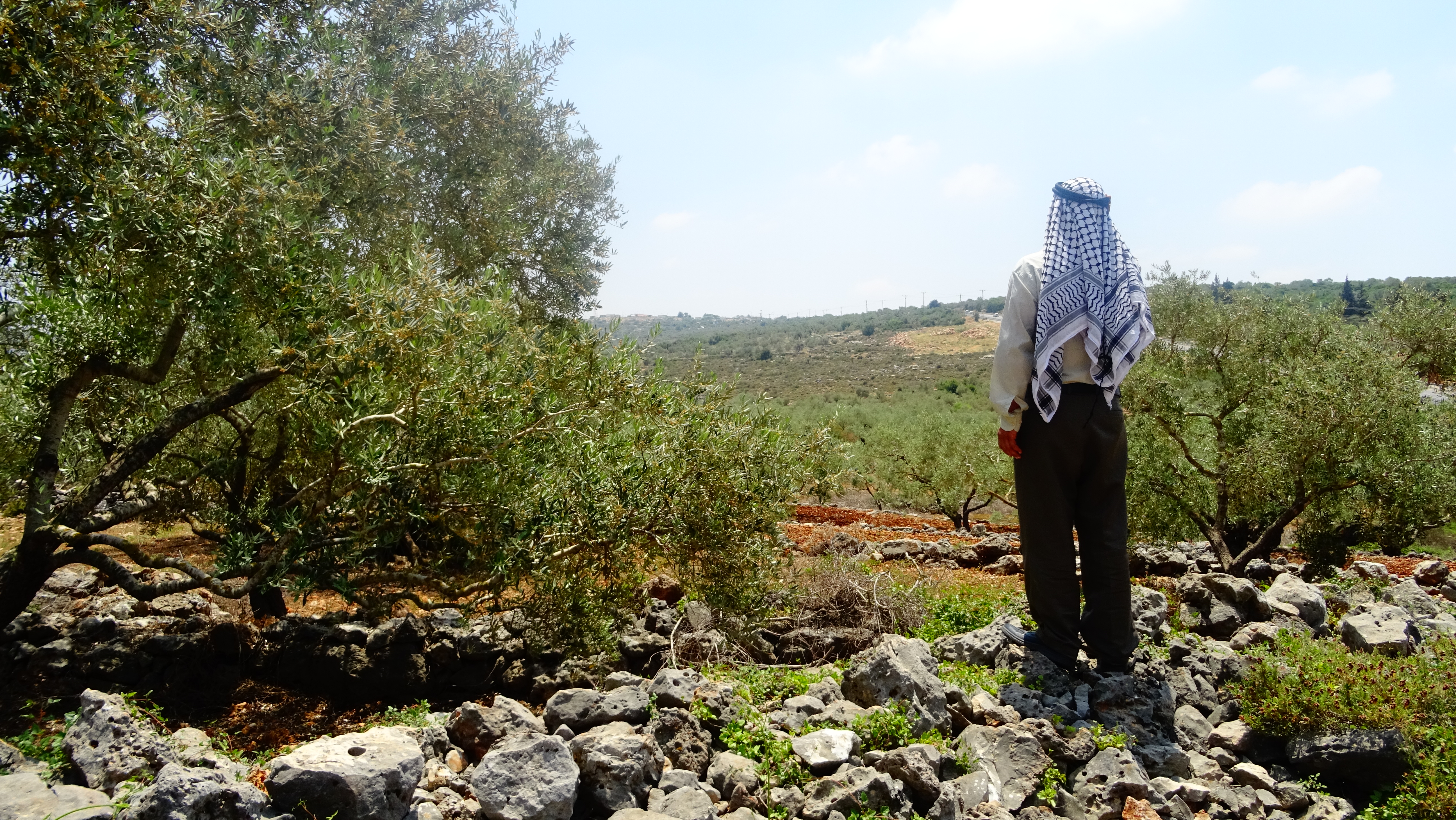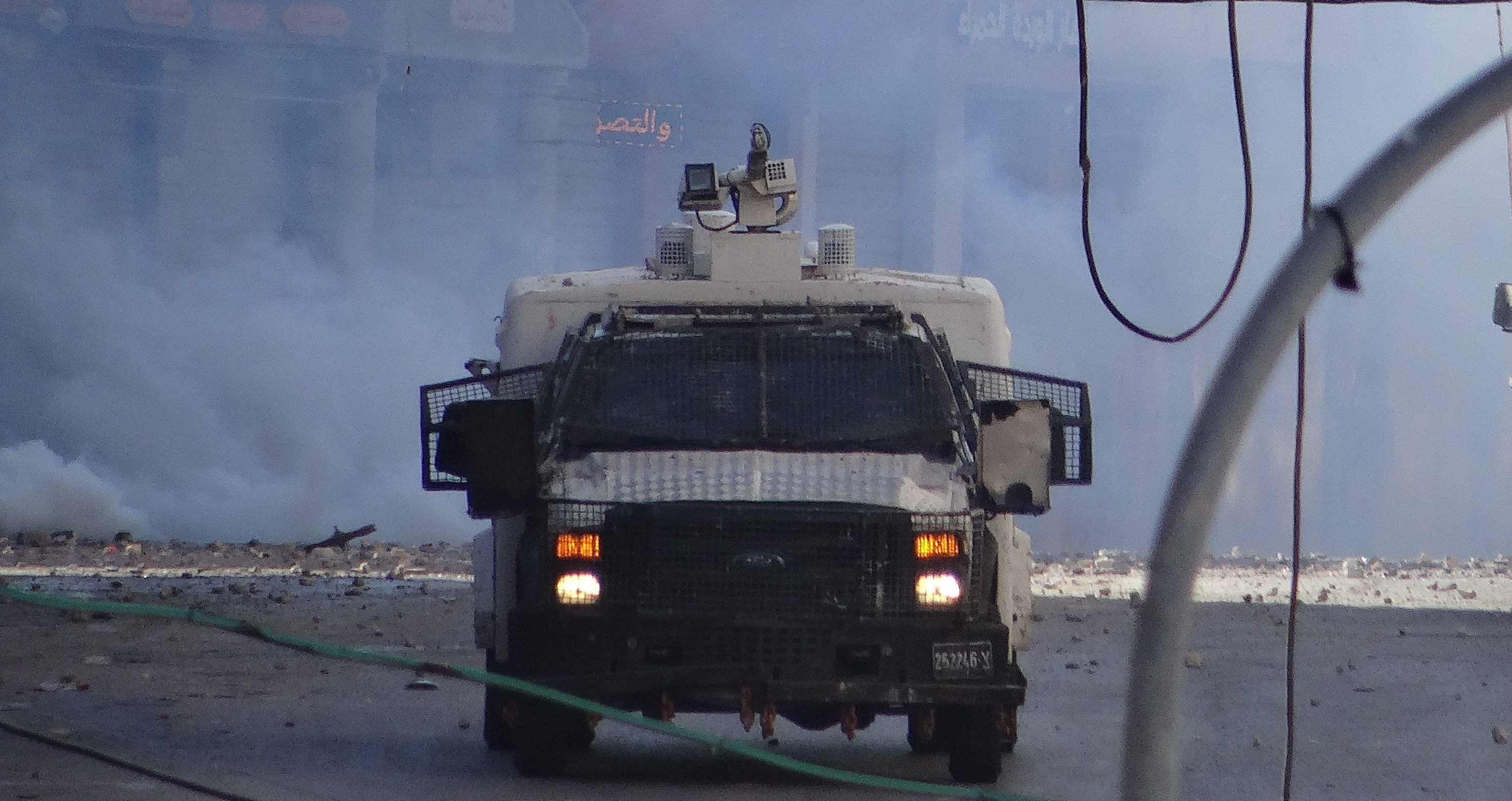Tag: Demonstration
-
Israeli forces shoot teargas and rubber coated steel bullets at the 6th anniversary demonstration of Kafr Qaddum
9th July 2017 | International Solidarity Movement, Al-Khalil team | Hebron, occupied Palestine On Friday 7th of July the residents of Kafr Qaddum gathered for their weekly demonstration marking its 6th anniversary, which was repressed by the Israeli forces shooting teargas, stun grenades and rubber-coated steel bullets at demonstrators. Israeli forces approached the demonstrators in…
-
Palestinians denied passage for Friday prayer in Deir Istiya
6th May 2017 | International Solidarity Movement, Ramallah Team | Deir Istiya, occupied Palestine Yesterday, 5th May, for the second week in a row , a group of Palestinians gathered in the olive groves, just outside Deir Istiya, district of Salfit, for their Friday prayer. Before the prayer even started, a group of Israeli soldiers denied…
-
Two days of clashes in al-Khalil in connection with prisoners’ hunger strike
30th April 2017 | International Solidarity Movement, Khalil Team | al-Khalil (Hebron), occupied Palestine Heavy clashes broke out during two consecutive days as Israeli forces stormed the Bab Al-Zawiah neighborhood in al-Khalil, attacking young Palestinians protesting in solidarity with the ongoing prisoners’ hunger strike. It resulted in multiple persons being injured, caused by live ammunition…



